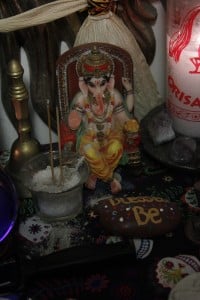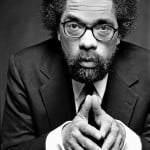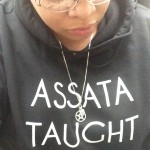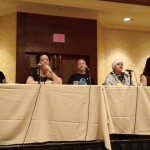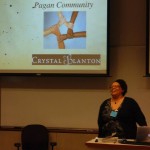During the climactic Act III, Scene I in Shakespeare’s Romeo and Juliet, Mercutio (in pain) speaks to his best friend Romeo as a dying man. “’Tis not so deep as a well, nor so wide as a church-door; but ‘tis enough, ‘twill serve: ask for me to-morrow, and you shall find me a grave man. I am peppered, I warrant, for this world. A plague o’ both your houses!”
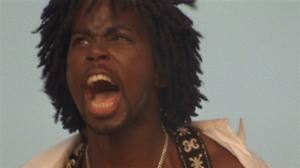
A plague on both our houses; simple, profound, and so relevant in today’s society.
I went to a trauma summit in Oakland today. This summit concentrated on trauma-informed practices and the effects of trauma over time. It in essence was focused on providing hope for those who have experienced trauma by infusing new techniques with providers.
There are some things I could talk about that happened within the summit, but they would not be totally relevant to this particular blog. But one of the sessions I went to was called “Systematic Oppression and Resiliency.”
The facilitators, Dr. Jackson and Ms. King, packed this workshop with information that applied to the historical damage that has been done to the American Indians and African American people. The concept that damage, violence, harm, institutional racism, and the devaluing of humanity for an entire category of people, has lasting effects for coming generations. Part of this workshop addressed how individual treatment of trauma does not work for the healing of historical trauma because the root is in the systematic harm that has been caused. In essence, individual treatment does not fix society’s ills.
Dr. Jackson made some incredible points in response to people’s privileged statements about how slavery is over and we should move on. Some of those points addressed the concept of disenfranchised grief, the withholding of mental health service access during, and post-slavery (and even now), the collective shadow, and the need for psychological liberation.
Professionally it is my passion to work through historical, social and structural injustice in order to create opportunity for the underprivileged. This is the reason why I have worked in drug treatment for 13 years, and more importantly, it is why I have stayed working in the trauma-laced communities with youth for six of those 13. But it is also my spiritual mission in many ways as well because one cannot separate the two, as we are a “one” people.
In healing within any culture, there needs to be an opportunity to explore the untold stories. African Americans have not had the opportunity to do that within a safe and accepting societal structure. The reality is that Caucasians have not either. The damage of the historical trauma brought upon African Americans was also brought upon Caucasians as well. No group of people could do that level of damage to another group of people without being damaged in the process. In our Americanized-societal values, we choose to glance over the harm of our history instead of inviting ourselves to explore what our history means to who we are. And in the process we have some cultures feeling disenfranchised from the grief of their historical pain, and another culture unable to explore the discomfort of “white guilt” that has underlined privileges given due to the suffering of others within history.
One of the quotes from the workshop struck me to the core. “If the white man has inflicted the wounds of racism upon black men, the cost has been that he would receive the mirror image of that wound into himself,” (Berry, 1989). I ponder that thought. How are we ever able to engage authentically with one another when we are not exploring the need for healing that is rooted in our very core? Society as a whole suffers from this, and so does the Pagan community.
Much of this discussion I was listening to overlapped with my beliefs around the needs within my professional and spiritual community work. The key note speaker, Mary Blake, made a comment earlier in the summit about how “the impact and legacy of violence does not go away.” And instead of embracing our collective needs for exploring the historical ramifications that these atrocities have had in our communities, we instead ignore their existence and then villainize one another for our responsive behavior to the “forgotten” traumas within our psyche.
The facilitators of this workshop gave a list of some of the things that support healing from historical trauma; I will include a couple points here.
- Tell the untold story.
- Put behavior and conditions in context of the history.
- Ceremony and Native models.
Whether we are talking about Native people, African Americans or our dear Pagan communities, what if we applied this wisdom to ourselves? What if we allowed ourselves to listen, tell and learn from the untold stories of our history and our ancestors? Not the ones in the history books, but the ones of pain, the oppressed and the oppressors that were removed from modern American history. What if we approached one another with the knowledge that behaviors are influenced by the history of our collective stories and our collective shadow? What would it look like if we acknowledged one another’s need to heal and solidified that healing with ceremonies and culturally-relevant models of celebratory practices that would help us transition individually and collectively as a healthier community?
Why don’t we have rituals and ceremonies that allow us to embrace the shadows of our history? Why don’t we have rites of passage to empower and mark the transition from our past trauma into a place of spiritual wholeness? Why don’t we have ceremonies that reinforce our need for a trauma-informed community and support empathy for one another’s historical trauma?
These are big questions. I don’t have all the answers and yet I feel that the next movement in society will mirror the movement within the Pagan community, and our need to redefine our relationships with social justice, diversity, community values and sustainability will become more prevalent. Do we gloss over our road blocks as if they do not exist, or do we embrace the complexity of our human nature by acknowledging that our love of the Goddess does not erase the harm of our histories?
As the focus continue to turn to privilege, labels, inclusiveness, exclusion, community and our collective potential, let us stop allowing the “scratching the surface” norms to be acceptable within Pagan culture. Let’s challenge one another by extending a chance for safe exploration of who we are individually, who we are within our societies, who we are within our ethnic cultures, and who we are collectively as one Pagan community.
If we don’t take our opportunities to move toward health, it could be the keys to continued dysfunction or the beginning of our end. We are living in the plagued houses of Mercutio’s curse and we have forgotten where we are. As Maya Angelou said, “There is no greater agony than bearing an untold story inside of you”.
Maybe if we release our stories, we can then be free to create new ones.
Writers note: This video was shared in the workshop. I had to share it here. It brought tears to my eyes.

